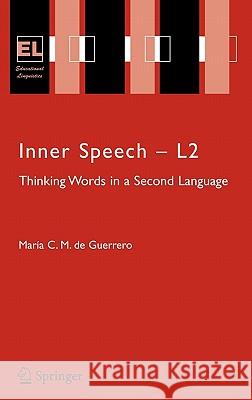Inner Speech - L2: Thinking Words in a Second Language » książka
Inner Speech - L2: Thinking Words in a Second Language
ISBN-13: 9780387245775 / Angielski / Twarda / 2005 / 252 str.
The purpose of this book is to explore inner speech and its connections to second language (L2) learning. Inner speech, or silent self-directed speaking, enables the faculty to think words and is the main instrument for verbal thought. Inner speech originates in first language (L1) social discourse and develops in childhood through a process of internalization. In this book, it is postulated that, given certain conditions of L2 learning, it is possible to develop L2 inner speech as a result of the interiorization of L2 social speech. Inner speech has been quite extensively investigated from an L1 perspective. The L2 acquisition field, however, has been slow in acknowledging the importance of inner speech in learning another language. Although within the past decade there have been some notable efforts to explore the topic from an L2 point of view, these efforts have remained in the form of isolated articles and short sections in larger volumes. This book reviews the extant literature on L1-L2 inner speech in its attempt to offer a coherent and comprehensive account of the phenomenon. the nature of L2 inner speech and the processes that engender it and characterize its development. The pedagogical implications of recognizing the crucial role inner speech plays in L2 learning are also addressed. Inner Speech - L2 comprises a discussion of the historical and theoretical foundations of the concept of inner speech; a review of studies related to L1 and L2 inner speech and its methodology of research; an interpretive account of the origin, nature, and development of L2 inner speech from a sociocultural theory point of view; and various pedagogical implications and suggestions for further research.











